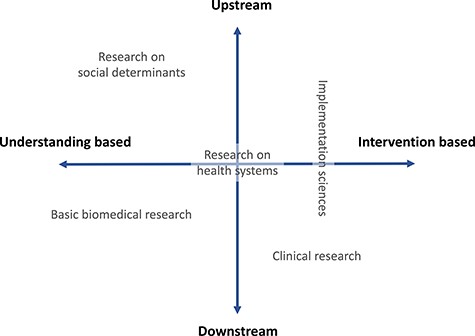Nudge Theory Is Making Inroads in Health Care, With Mixed Results
Nudge Theory Is Making Inroads in Health Care, With Mixed Results

Send us a link

There is a debate on shifting research away from biomedical treatments towards health promotion and well-being. This study examines if research agendas are responsive to these demands in cardiometabolic and mental health.

Collaborations between AI researchers and China's medical workers are helping to combat diseases such as diabetes and COVID-19.

The detection and removal of poor-quality data in a training set is crucial to achieve high-performing AI models. In healthcare, data can be inherently poor-quality due to uncertainty or subjectivity, but as is often the case, the requirement for data privacy restricts AI practitioners from accessing raw training data, meaning manual visual verification of private patient data is not possible. Here we describe a novel method for automated identification of poor-quality data, called Untrainable Data Cleansing. This method is shown to have numerous benefits including protection of private patient data; improvement in AI generalizability; reduction in time, cost, and data needed for training; all while offering a truer reporting of AI performance itself. Additionally, results show that Untrainable Data Cleansing could be useful as a triage tool to identify difficult clinical cases that may warrant in-depth evaluation or additional testing to support a diagnosis.

Several state legislatures have taken steps to restrict access to gender-affirming health care for transgender adolescents. That goes against medical guidelines.

Research in this area deserves more attention - and not only for conditions related to reproduction.

The United States trails far behind other high-income countries on measures of health care affordability, administrative efficiency, equity, and outcomes.

Along with healthcare providers around the world, the Wellcome Trust PhD fellow Karin Purshouse is seeing the need for fast-tracked guidance on the virus and patient treatment.

Epic, the large electronic health record company, wants to scuttle a rule that requires information to flow freely between EHRs. It should embrace it.

The vaccine, developed by Merck, protects against Zaire ebolaviruses, the species of the virus that has been the most common cause of Ebola outbreaks.

The initiative, "Project Nightingale," gives the tech giant the ability to analyze personal health information from Ascension, a Catholic hospital system.

The U.S. health care system uses commercial algorithms to guide health decisions. Obermeyer et al. find evidence of racial bias in one widely used algorithm, such that Black patients assigned the same level of risk by the algorithm are sicker than White patients (see the Perspective by Benjamin). The authors estimated that this racial bias reduces the number of Black patients identified for extra care by more than half.

In the three years since it ended, the pandemic has become an object of obsession for scientists, who have published more than 6,000 research papers about it. What did they conclude?
Scientists dive into trove of insurance claims data to determine what causes most diseases.

There’s a real problem behind this Twitter spat.

Complex algorithms will soon help clinicians make incredibly accurate determinations about our health from large amounts of information, premised on largely unexplainable correlations in that data.
